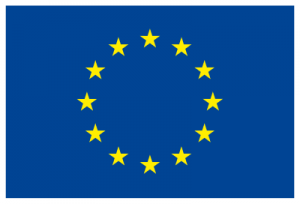This policy brief discusses the main findings of the study conducted in RICHES about digital CH websites and their contributions towards the development of a European identity that encapsulates the diversity of communities across the continent. It offers a series of recommendations, which can contribute to the understanding of a European identity and strengthen already existing relationships.
Read More →
This project has received funding from the European Union’s Seventh Framework Programme for research, technological development and demonstration under grant agreement n° 612789.
Monthly Archives: April 2016
European Policy Brief. The Cultural Heritage Institution: Transformation and Change in a Digital Age
This policy brief is concerned with CH institutions in a time of dynamic cultural, social and technological change. Specifically, it considers the multi-faceted impact of DT and the recalibration of the relationship between institutional CH practices and the individual. It advocates that innovation through research and new technologies are essential for bringing the CH of Europe closer to people, the importance of the CH sector to European growth and the recognition of DT as a driver of change in the CH institution.
Read More →RICHES Think Paper 08. Cultural Heritage as fuel for innovation: enabling the power of creation
How is innovation stimulated? Where does CH fit in the innovation process? What is the role of CH creators and managers in the innovation process of a society? How can an innovative environment be nurtured? This Think Paper explores the role of CH in innovation and focuses on the changing digital landscape where CH exists. The main argument is that the digital availability of CH content can serve as trigger to fuel innovation in all sectors of society.
Read More →RICHES Think Paper 07. Public-Private Partnerships for Cultural Heritage: Opportunities, Challenges, Future Steps
This Think Paper addresses the theme of Public-Private Partnerships (PPP) and raises questions about the validity of these partnerships for public administrations, the private sector and citizens. When the requirements of these parties are well served, then we can expect PPP to become an accelerator for the investments in the cultural heritage sector. This Think Paper provides an overview of what PPP is, with a special focus on PPP and cultural heritage, discussing opportunities and advantages, identifying some challenges, and proposing a set of future steps to gain more benefits from PPP.
Read More →RICHES Think Paper 06. Museum education with digital technologies: participation and lifelong learning
Education and learning have been a high priority task for museums. Whether informal and unintentional or structured in educational programmes for different kinds of audiences, museum learning focuses on the learner. Rather than knowledge transmission, it builds upon knowledge construction and an active engagement in personal, social and physical contexts. More than knowledge acquisition, learning in museums is engaging and gives a sense of wellbeing.
Read More →RICHES Think Paper 05. Digital heritage: intellectual rights, democracy and commoditisation of cultural heritage places
This Think Paper refects on debates arising from RICHES research regarding the increasing digitisation of cultural heritage places. The analysis highlights concerns about intellectual property rights, democratisation of knowledge and commoditisation of cultural heritage places. It argues that while digital technologies offer new opportunities to experience, consume, conserve and interact with cultural heritage, a balanced approached is needed to ensure the medium plays the role of enhancement rather than replacement or monopolisation.
Read More →RICHES Think Paper 04. Digital Technologies: Re-thinking Turkish Libraries in an Information Society
Digital technology (DT) has had an enormous impact on Turkish society and culture and has introduced many changes in cultural heritage (CH) institutions such as libraries in Turkey. Traditionally used for borrowing books, doing homework or spending free time within a specific restricted timeframe, the introduction of DT has allowed for an expanded service for users with no restrictions of time and place or socio-economic background. For example, the important and extensive history and CH of Anatolia has been digitised and can be accessed online by anyone, at any time and in any place.
Read More →RICHES Think Paper 03. Cultural Heritage Festivals: Belonging, Sense of Place and Identity
This RICHES Think Paper considers the role of cultural heritage festivals in contributing to notions of belonging, sense of place and identity. It argues that with increasing migration across Europe, there is a need for more in-depth research to examine the extent to which cultural heritage festivals such as London’s Notting Hill Carnival could add to the promotion of greater European integration and social and economic development.
Read More →RICHES Think Paper 02. New Forms of Artistic Performances and the Future of Cultural Heritage
How can dance and performance artists interact with digital technologies to create new artefacts and events? How are new skills, which can coexist and complement traditional skills, developing in today’s performing arts landscape? In which ways are cultural expressions from the past being currently reinvigorated and renewed with leading edge digital technology?
Read More →European Policy Brief. The Economic and Fiscal Dimension of Cultural Heritage.
This policy brief focuses on the effects of two forms of government support: VAT regulation for CH goods and services and direct subsidies to CH organisations. It presents the results and outcomes of the research that explores the relation between the characteristics of different European countries and the effects of government support in VAT rates for CH organisations, and it describes the actions that can be taken to stimulate a CH-rich and CH-engaged European society.
Read More →